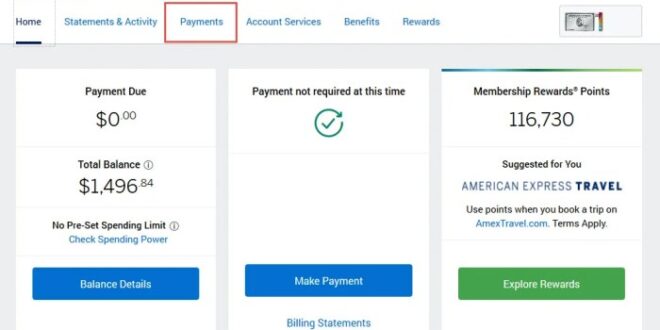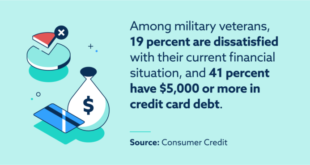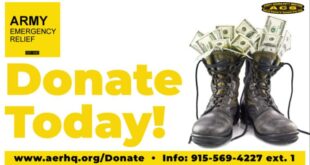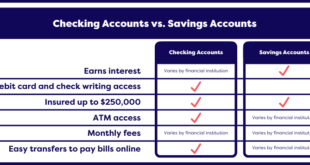In the face of unexpected financial emergencies, i need emergency cash assistance emerges as a beacon of hope, offering a lifeline to individuals and families struggling to make ends meet. This comprehensive guide delves into the eligibility criteria, application process, types of assistance available, and the profound impact it can have on those in dire need.
The content of the second paragraph that provides descriptive and clear information about the topic
Eligibility and Criteria for Emergency Cash Assistance

Emergency cash assistance is designed to provide temporary financial relief to individuals and families facing immediate financial hardship. To qualify for assistance, applicants must meet specific eligibility requirements and provide documentation to support their claim.
Eligibility for emergency cash assistance is typically based on the following criteria:
- Income: Applicants must demonstrate that their income is below a certain threshold, typically set at or below the poverty level.
- Assets: Applicants must have limited assets, such as savings or investments, that could be used to cover their expenses.
- Need: Applicants must demonstrate an immediate need for financial assistance, such as facing eviction or utility shut-off.
- Citizenship or residency: Applicants may be required to be citizens or legal residents of the jurisdiction where they are applying for assistance.
In addition to these basic criteria, some programs may have additional eligibility requirements, such as:
- Age: Some programs may have age restrictions, such as requiring applicants to be over 18 or under 65.
- Disability: Some programs may prioritize individuals with disabilities.
- Family status: Some programs may give priority to families with children.
To apply for emergency cash assistance, applicants will typically need to provide documentation to verify their income, assets, and need. This may include:
- Proof of income, such as pay stubs or bank statements.
- Proof of assets, such as bank statements or investment statements.
- Proof of need, such as eviction notices or utility bills.
- Identification documents, such as a driver’s license or passport.
Once an application is submitted, it will be reviewed by a caseworker who will determine if the applicant meets the eligibility criteria. If approved, the applicant will receive a one-time cash payment to help cover their immediate financial needs.
Application Process and Timeline
Applying for emergency cash assistance involves a series of steps. The specific process may vary slightly depending on the agency or organization you’re applying through, but the general steps are as follows:
- Contact the agency or organization:Reach out to the agency or organization that provides emergency cash assistance in your area. You can find contact information online, in the phone book, or by visiting their office.
- Gather necessary documents:You will likely need to provide documentation to prove your identity, income, and expenses. This may include items such as a photo ID, proof of income, and bills.
- Complete an application:The agency or organization will provide you with an application to complete. This application will ask for information about your financial situation, your need for assistance, and your contact information.
- Submit your application:Once you have completed the application, submit it to the agency or organization. You may be able to submit it in person, by mail, or online.
- Wait for a decision:The agency or organization will review your application and make a decision. You will be notified of the decision in writing.
The timeline for the application process can vary depending on the agency or organization you’re applying through. However, you can generally expect the process to take several weeks. In some cases, you may receive a decision within a few days, while in other cases, it may take several months.
If you are denied emergency cash assistance, you may be able to appeal the decision. The appeals process will vary depending on the agency or organization, but you will typically have a certain amount of time to file an appeal.
Types and Amount of Assistance Available
Emergency cash assistance programs vary in the types and amounts of assistance they provide. The most common types of assistance include:
- Rental assistance:Helps cover rent payments or security deposits for individuals or families at risk of eviction.
- Utility assistance:Provides assistance with paying for essential utilities such as electricity, gas, and water.
- Food assistance:Offers vouchers or financial assistance to purchase food and groceries.
- Transportation assistance:Provides funds or vouchers for transportation costs, such as car repairs or public transportation fares.
- Medical assistance:Covers medical expenses such as prescription drugs, doctor’s visits, and hospital stays.
The maximum amount of assistance available varies depending on the program and the individual’s circumstances. Some programs have income limits or other eligibility criteria that may affect the amount of assistance provided.
For example, rental assistance programs may have income limits to ensure that only those who are truly in need receive assistance. Additionally, the amount of assistance may be based on the size of the household and the location of the residence.
It’s important to note that emergency cash assistance programs are typically short-term and are not intended to provide long-term financial support. However, they can provide much-needed relief during times of crisis.
Impact of Emergency Cash Assistance on Individuals and Families

Emergency cash assistance provides a lifeline for individuals and families facing financial crises, helping them meet immediate needs and stabilize their lives. It can offer a range of benefits that extend beyond immediate relief, fostering long-term resilience and well-being.
Benefits of Emergency Cash Assistance
Emergency cash assistance can help individuals and families in crisis by:
- Covering basic expenses such as food, rent, utilities, and transportation, ensuring access to essential resources.
- Reducing financial stress and anxiety, allowing individuals to focus on other aspects of their lives, such as health and well-being.
- Preventing homelessness and other negative consequences of financial hardship, promoting stability and security.
Long-Term Benefits of Emergency Cash Assistance
In addition to immediate relief, emergency cash assistance can have long-term benefits for individuals and families:
- Improving mental and physical health outcomes by reducing stress and improving access to healthcare.
- Promoting financial stability and independence by helping individuals build savings and manage their finances more effectively.
- Fostering economic mobility by allowing individuals to invest in education, job training, and other opportunities.
Challenges Associated with Emergency Cash Assistance
While emergency cash assistance can provide significant benefits, it is essential to acknowledge potential drawbacks and challenges:
- Dependency:Long-term reliance on assistance can create dependency and reduce motivation for self-sufficiency.
- Stigma:Receiving assistance can carry a stigma, leading to feelings of shame or inadequacy.
- Ineligibility:Not all individuals and families qualify for emergency cash assistance, which can create inequities and gaps in support.
Resources and Support for Applicants
Applicants seeking emergency cash assistance can access a range of resources and support services to guide them through the application process and provide ongoing assistance. These resources include local organizations, government agencies, and non-profit groups dedicated to supporting individuals and families in financial distress.
In addition to providing financial assistance, many organizations offer financial literacy and budgeting programs to help applicants manage their emergency funds effectively. These programs provide education on budgeting techniques, debt management, and financial planning, empowering individuals to make informed decisions about their finances and achieve long-term financial stability.
Local Organizations
- Community action agencies offer a range of services to low-income individuals and families, including emergency cash assistance, food assistance, and housing assistance.
- Salvation Army provides emergency financial assistance, food, and shelter to individuals and families in need.
- United Way offers a variety of programs and services to support individuals and families in need, including emergency cash assistance, financial counseling, and job training.
Government Agencies
- Temporary Assistance for Needy Families (TANF) is a federal program that provides cash assistance to low-income families with children.
- Supplemental Nutrition Assistance Program (SNAP) provides food assistance to low-income individuals and families.
- Medicaid provides health insurance to low-income individuals and families.
Non-Profit Groups, I need emergency cash assistance
- National Council of La Raza (NCLR) provides a range of services to Hispanic families, including emergency cash assistance, financial counseling, and educational programs.
- National Urban League provides a range of services to African American families, including emergency cash assistance, job training, and educational programs.
- Catholic Charities provides a range of services to individuals and families in need, including emergency cash assistance, food assistance, and housing assistance.
Final Review

As we conclude our exploration of i need emergency cash assistance, it becomes evident that this invaluable resource plays a crucial role in alleviating financial burdens, providing stability, and empowering individuals to navigate challenging times. Understanding the eligibility requirements, application process, and available support systems is paramount to accessing this vital assistance.
General Inquiries: I Need Emergency Cash Assistance
Who is eligible for emergency cash assistance?
Eligibility criteria vary depending on the specific program and location, but generally include individuals and families facing financial hardship due to job loss, medical emergencies, natural disasters, or other unforeseen circumstances.
What documentation is required to apply for emergency cash assistance?
Commonly required documents include proof of income, expenses, identification, and documentation supporting the emergency situation.
Are there any restrictions on who can receive emergency cash assistance?
Restrictions may apply based on income limits, residency requirements, or other program-specific criteria.
How long does it take to process an application for emergency cash assistance?
Processing times vary depending on the program and the volume of applications, but typically range from a few days to several weeks.
What are the potential drawbacks or challenges associated with receiving emergency cash assistance?
Potential challenges include repayment requirements, impact on credit scores, and the need to demonstrate ongoing financial need to maintain assistance.
 Nenroll Nenroll News
Nenroll Nenroll News




